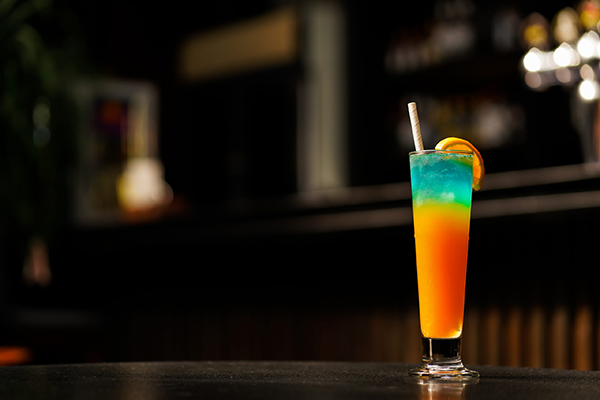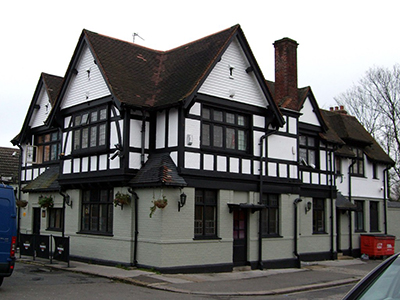From Mocktails to Mindful, AF needs a common language
28 November 2023
Have you ever stopped to consider the words you use to describe the world of alcohol-free? The words that brands put on labels to describe what they do? How all of us refer to the consumers, the cocktails - even the category itself?
This was the starting point for a report put together by UK NoLo shop/bar Club Soda and London-based marketing agency BoldSpace. And if you haven’t already, I’d urge you to take a look here.
At a time (and a time of year) when there’s no shortage of positive stories about the apparently unstoppable growth of the alcohol-free category, you might think it odd to engage in what amounts to an exercise in semantics.
Why do we need such an exercise in navel-gazing when everything’s going so well, you might ask? And you’d be right. But also wrong. Because words matter – particularly in drink. Why do you think wine regions and spirits categories have fought so hard to protect terms like Burgundy and Scotch down the years?
The point about alcoholic drinks is that they’ve been around for a long time, so language has become entrenched, accepted, and in many cases codified in law. But the world of NoLo is incredibly young so this isn’t the case.
It’s equally true that it will be far less confusing for the public if we are able to be consistent in the words that we use. It's time - quite literally - for the AF space to control the narrative.
So far, so logical. The problem is that it isn’t easy.
While describing the category itself is relatively straightforward – Alcohol-Free (AF) and Non-Alcoholic (non-alc) are increasingly being used interchangeably for drinks at 0.5% and below, while NoLo/No-and-Low covers the wider category – other areas, though, are more difficult.
How, for instance, should we describe AF consumers?
Sober and Teetotal suggest total permanent abstinence, which may not be accurate for many drinkers.
Mindful and Moderating capture the behaviour of those who are not permanently abstaining, but they are, for want of a better word, rather worthy terms. Aspirational and exciting, they ain’t. Plus they are terms that are used mostly within the industry. It’s unlikely that too many members of the general public would describe themselves in this way.
Dry? Flexitarian? Mindful? Sober-Curious? You could make a case for all of them, and then demolish them equally easily.
Hard - but in a good way
The challenge, in a sense, is a good one. Namely, that this is the most open and welcoming of all drinks categories – unlike booze it’s accessible to literally every adult on the planet. So we need a term that is equally inclusive and doesn’t prioritise one group over another.
Theoretically we already have such a word. But it makes you realise the sheer impact that alcohol has on global culture, when the word ‘drinking’ – which should be neutral – actually implies ‘drinking alcohol’. Getting round this is not going to be easy. Answers on a postcard please.
However, one area where there seems to be a growing feeling that the industry can and should act is the way in which AF cocktails are described on lists.
The BoldSpace report suggests bars and restaurants should avoid two terms: mocktail and any descriptor using the word ‘virgin’, on the grounds that neither does the modern world of AF drinks justice.
Virgin, I think, we can definitely consign to the bin. It suggests something virtuous, puritanical and – in a way, joyless.
Go out if you must, but don’t misbehave and make sure you’re back in bed by ten. To hell with that.
Mocktails, however, is more complicated. Detractors point out that, rather than meaning an imitation, ‘mock’ can suggest that something is lacking in seriousness, even authenticity. Think mock exams or mock Tudor.
There’s something in this. But the term has been around for long enough that a good number of consumers know and recognise it. When the Mocktails brand started up, I remember thinking it was a sharp idea: a name with instant resonance in a still-young industry. Their products are good enough to have picked up several medals in this year’s Awards.
 |
| Mock Tudor... Good or bad? Mocktail... Good or bad? |
But when it comes to using the generic (rather than branded) term ‘mocktails’ on a menu there may be a case for a reset. The original ‘mocktails’ on a menu of ten years ago were soft-drink based, created, as they were, at a time before the modern alcohol-free scene got going.
But that’s no longer the case. Modern AF cocktails can be bitter, sour, sharp, spicy, rich, smooth, warming… they’re very different from old-school ‘mocktails’. That can be confusing, so despite public resonance, the case for change is worth hearing.
One option is to mix cocktails of all alcoholic strengths – low, no- and full-strength - in one wide-ranging menu, and simply mark each one’s ABV. This is the tidiest solution in theory. But it’s complicated for venues and relies on consumers being observant enough to notice the strengths in the first place, and savvy enough to understand what they mean.
Better, perhaps, would be to follow the example of the Ask restaurant group in the UK, who split their cocktails into Classic cocktails, Non-alcoholic cocktails and Speciality Softs.
Clear, simple and unambiguous, it does it for me…
As the alc-free category grows and develops, it’s clear that we will need to ask – and keep asking - ourselves some tough questions about what our part of the drinks world stands for, who we’re aimed at and how we talk about both of these things.
These are not simple – or easy – conversations to have. But standardising some terms and getting rid of others once that are sub-optimal or confusing would be a great start.
Main Pic: Sukhjinder, PixaHive


